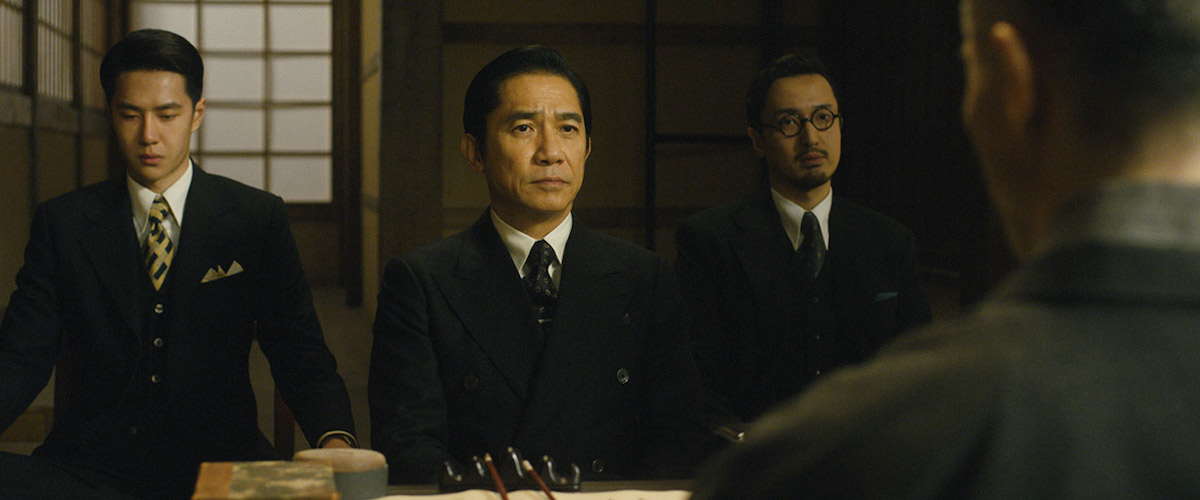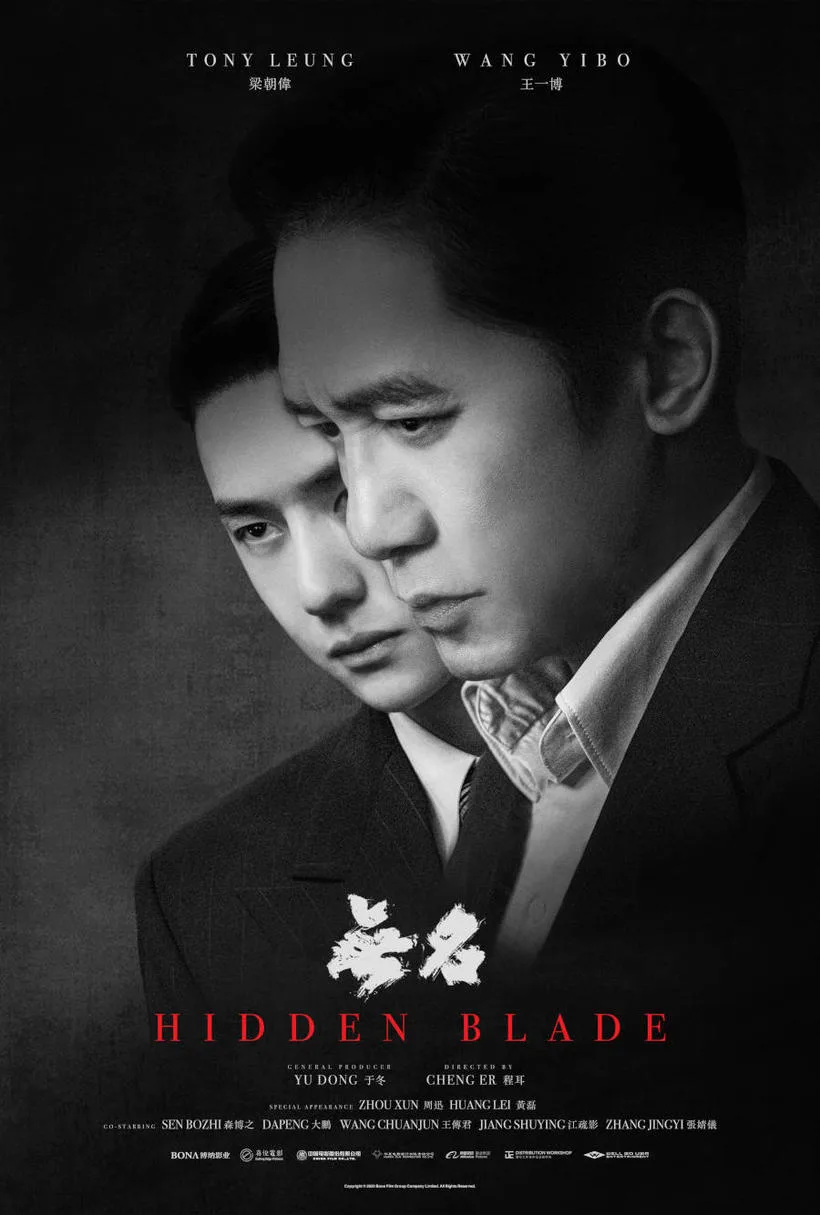The gorgeous and empty Chinese espionage thriller “Hidden Blade” follows a series of chaotic vignettes about war, which remains hellish. Studiously aloof Communist spies either work with or wear down their fair-weather Japanese allies during ham-handed, quasi-impressionistic conversations, which are sometimes interrupted by graphic and perfunctory bloodshed. These episodic sketches immediately feel monotonous since the plot isn’t arranged in chronological or sequential order; leaps in time from 1945 back to 1941 and then forward to eventually 1944 are a distracting overcompensation for an otherwise lifeless chain of impersonal betrayals, cold-blooded murders, and unbelievable moping from all involved.
“In the Mood for Love” star Tony Leung Chiu-wai, smiling mischievously throughout, plays Mr. He, one of many ill-fated spies who actually serves the Chinese Communists while also seeming to collaborate with the Japanese—mostly represented by the haughty Nipponese official Watanabe (Hiroyuki Mori)—and President Wang’s puppet government in Manchuria. Mr. He has allied with the relatively impressionable Mr. Ye (Wang Yibo), who chases after and retraces He’s steps in order to secure more information for too many masters. Both He and Ye try to satisfy the increasingly testy Watanabe, but he’s too much of a stock villain to be a major threat. Watanabe’s commands are still unfair, and the consequences of his actions are brutal and, yawn, destabilizing.
Meanwhile, Tony Leung indicates, with his attentive eyes and endless cigarettes, an earthier and largely unexplored way into this sadsack arthouse drama. Both the plot’s narrow scope and free-associative structure are telling, since the story begins in 1938—when Japanese pilots and Chinese collaborators bombed the Chinese city of Guangzhou—and ends around 1946, months after the war’s end. In this way, viewers must focus on the characters’ wearying struggle against the cruel Japanese—whose attack on Guangzhou leaves one main character to mourn their innocent brother, who dies alongside his cute Shiba Inu, named Roosevelt. But the movie’s big, state-approved climax is very much what it is: an execution that’s represented as a fist-pumping triumph, complete with one major character revealing to the other the real secret of his success—he’s a Communist, too.
So maybe it’s not that surprising to see Leung’s star power wasted in such a dour genre exercise, whose high-toned cinematography, handsome period costumes, and nostalgia-inducing production design also only underscore how shallow and unlovable everything else tends to be. “Hidden Blade” indicates dramatic tension through scenes that are elliptical and needlessly clipped.
The filmmakers never stop telling you what their movie is about without ever making you want to invest in He, Ye, or Watanabe, or any of the secondary characters caught in their crisscrossing orbits, like He’s love interest, Mrs. Chen (Zhou Xun), who’s inevitably threatened with sexual violence. Almost every action and line of pseudo-abstract dialogue blithely hints at heavy events; “Hidden Blade” rarely slows down long enough to consider potential emotional fallout.
Watanabe is the kind of villain who bares his teeth and makes idles threats. And Mr. He’s the doomed lickspittle whose faith in his peers is rocked every time they reveal themselves to be as faithless and amoral as they, uh, constantly tell us they are? “I can only keep going until the end of the road,” one guy mumbles aloud like he’s the second coming of Yogi Berra. Another guy threatens an unarmed victim like he’s a Bond villain gloating to Timothy Dalton: “To make things easier, I think I’ll have to kill you.” “Never let emotions get in your way,” warns a third character, seemingly on behalf of their chilly, but genre-savvy creators.
As Mr. He, Leung creeps around hotel corridors and stares out back-lit windows, constantly smoking to ward away complicating thoughts. He shares too much screen-time with Wang, whose Mr. Ye turns out to be the movie’s real lead since he’s the one who ultimately reckons with the plot’s central moral vacuum. Too bad, because Wang doesn’t look that soulful when he cries—and he has to, in a couple of key scenes—and his stares are never as long or meaningful as Leung’s slight, seductive little smiles. Leung runs rings around his character, an elusive and therefore dangerous mercenary; Wang struggles to make us believe that somebody could be either so naïve or vacant as to sleepwalk their way through their own frequently imperiled life, especially when it’s presented as a self-pitying highlight reel.
These two main characters share a big fight scene, and it’s as long and exhausting as Roddy Piper and Keith David’s brawl in “They Live.” You might hope that this showstopper might force the makers of “Hidden Blade” to switch emotional gears for a while. But this feel-bad pot-boiler doesn’t work that way, leaving one to wonder why you’d bait cinephiles with sexy smoking Tony Leung and then very slowly do nothing with him.
Now playing in theaters.




















